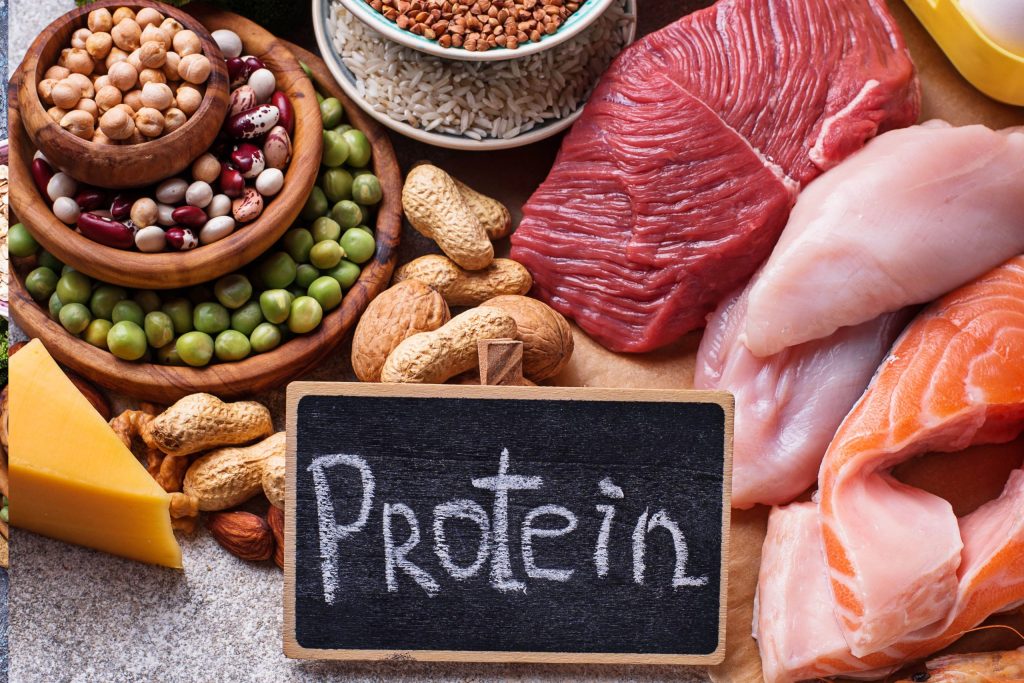Introduction:
Amino acids are the building blocks of proteins, they’re essential for the proper functioning of our bodies.
They play a critical role in numerous physiological processes, from tissue repair and hormone synthesis to immune function and enzyme activity.
When our diet lacks sufficient amino acids, the consequences can be profound and can significantly affect our overall health and our ability to get in shape.
Protein has a stigma, ‘it’s for the gym goers’, and the ‘body bodybuilders’, well yes, as much as the amino acids that make protein are required to fuel exercise and its subsequent recovery needs, they are also a crucial element to the balance of our overall health.
They are called ESSENTIAL Amino Acids for a reason.
They are essential for our overall health, and we must get them through dietary consumption.
If not, we are putting our physiology under much unnecessary stress which in the long run can lead to serious health complications.
7 Effects of Amino Acid Deficiency on the Human Body:
1. Muscle Mass and Strength Loss: Amino acids are vital for muscle protein synthesis which is the process by which muscles grow and repair themselves after exercise or injury. Inadequate amino acid intake can lead to decreased muscle mass and strength, making it challenging to build and maintain lean muscle. I’m not talking about traditional bodybuilding, I’m talking about being fit, strong, and healthy over the duration of life as well as in context with individualism. Stronger for longer, mobile, and independent for as many years as possible.
2. Fatigue and Weakness: Amino acids contribute to the production of enzymes and neurotransmitters responsible for energy production. When we lack these crucial components, we may experience fatigue, weakness, and a decrease in physical performance. This ties in with the above, if we are not getting enough ‘fuel’ as it is to feel good and function well through the day with focus, how will our bodies cope with the demand for protein on top of that after exercise? A huge part of thrival is a steady supply of protein to upregulate our energy levels. Protein in the morning helps with energy throughout the day.
3. Slow Healing and Tissue Repair: Protein-rich amino acids are essential for wound healing and tissue repair. A deficiency in amino acids can delay the body’s ability to recover from injuries and surgeries. You may say, well I don’t have surgery or get injured often, well none of us do, but often isn’t ever, and fast recoveries are mental demands that we put on ourselves when do have a brief encounter with them. Being well-nourished is also a good way of keeping out of the physio room.
4. Impaired Immune Function: Many components of our immune system, such as antibodies and immune cells, are protein-based and rely on amino acids for their formation. Without sufficient amino acids, our immune response may weaken, leaving us more susceptible to infections. Vitamin-C gets lots of the immune system limelight, thank you commercialism for that one. Many people who get regularly sick or even have allergies more often than not correlate to insufficient amino acid intake.
5. Hair, Skin, and Nail Problems: Proteins, including collagen, are crucial for maintaining healthy hair, skin, and nails. A lack of amino acids can lead to brittle nails, thinning hair, and dry, dull skin.
6. Hormonal Imbalance: Amino acids are involved in the synthesis of hormones that regulate various bodily functions, including metabolism and mood. An inadequate supply of amino acids can disrupt hormone production and lead to imbalances. This is the hardest-hitting side effect. hormone balance governs the balance of our mind and body. Without this balance, we can be emotionally charged, ill-disciplined shells of our potential, which creates a ripple effect of second best to our best selves in everything that we do.
7. Men’s Health: Amino acids are essential for the production of hormones and enzymes involved in male reproductive function. Inadequate amino acid intake as you know from the last point, can lead to hormonal imbalances, particularly affecting testosterone levels. Testosterone is a crucial hormone for sperm production (spermatogenesis) and overall reproductive health in men. Not only that, Insufficient amino acids can contribute to erectile dysfunction, making it difficult for men to achieve and maintain an erection, further impacting fertility. Are you a man who cares about your sexual health? If so, this is vitally important.
7. Women’s Health: Amino acids are essential for guess what? Yes, you’ve got it, the synthesis of hormones that regulate the menstrual cycle and support fertility in women. Hormones like estrogen and progesterone, which are crucial for ovulation and preparing the uterine lining for pregnancy, depend on adequate amino acid availability. A deficiency can lead to poor egg quality, reducing the chances of successful fertilization and implantation. Additionally, the uterine environment relies on amino acids to support embryo implantation and early fetal development. Insufficient amino acids may create an unfavorable environment, impacting the implantation process and increasing the risk of pregnancy complications. A steady supply of protein also massively supports the process of menopause. Are you a female who cares about your sexual health? If so, this again, is vitally important.
Why Amino Acid Deficiency Makes It Harder to Get in Shape:
Amino acid deficiency directly impacts the body’s ability to alter its composition, particularly when aiming to decrease body fat and increase lean muscle mass. When we don’t receive enough amino acids, several key factors happen.
1. Slowed Metabolism: Lean muscle mass plays a critical role in maintaining a healthy metabolism. As amino acid deficiency leads to muscle loss, the body’s metabolic rate may decrease, making it harder to utilize energy efficiently. Slower metabolism, slower results. We have control over variable factors to retrospectively improve our metabolism through choice.
2. Increased Fat Storage: With reduced muscle mass, the body may be more prone to storing excess energy as fat rather than using it for energy or muscle repair… even from whole foods.
3. Reduced Exercise Performance: Amino acids are essential for optimal physical performance, and their deficiency can lead to decreased exercise capacity. This can result in less efficient workouts and a draining effect as a result of poor recovery. This isn’t about being ‘an athlete’, it’s about feeling good.
4. Hunger and Cravings: Amino acids also play a role in regulating appetite and satiety hormones. Without enough of these building blocks, we may experience out-of-sync increased hunger and cravings, making it difficult to stick to whole healthy choices. Protein also helps manage insulin sensitivity which helps maintain a healthy blood sugar balance.
Conclusion:
Amino acids are fundamental to the proper functioning of our bodies and have a profound impact on our overall health.
They are the basic building blocks and raw materials that help our body regulate itself.
Without them, we are a shell of ourselves on a one-way street to frailty, weakness, and always being ‘tired‘… Yyyyyuky.
A deficiency in these essential building blocks can lead to muscle loss, impaired immune function, fatigue, and a host of other health issues including mental health complications as well as higher exposure to allergic reactions.
To maintain optimal body composition (muscle-to-fat ratio) and overall well-being, it is crucial to ensure an adequate intake of protein-rich foods that supply all the necessary amino acids.
This is determined by subjective factors unique to you as an individual, as a bare minimum, imagine your palm size is a portion of protein… aim for a minimum of 2/3 of those per day.
A balanced diet that meets our protein needs, coupled with regular exercise, a well-managed sleep pattern as well as hydration can help anybody get into shape and to feel on top of the world.
Committed to your health.
– Paul

Ps. If you need any help with feeling better, improving your habits, and your body shape, just simply reach out for a chat.
References
- Wu, G. (2009). Amino acids: metabolism, functions, and nutrition. Amino acids, 37(1), 1-17.
- Layman, D. K. (2003). The role of leucine in weight loss diets and glucose homeostasis. The Journal of Nutrition, 133(1), 261S-267S.
- Balage, M., et al. (2010). Amino acids and insulin signaling via mTOR/p70S6K pathway. Amino acids, 39(2), 443-449.
- Pasiakos, S. M., et al. (2015). Effects of high-protein diets on fat-free mass and muscle protein synthesis following weight loss: a randomized controlled trial. FASEB journal, 29(3), 1004-1012.
- Song, Y., et al. (2004). A high-protein low-glycemic index diet reduces hunger in hyperinsulinemic subjects. Obesity Research, 12(7), 1058-1066.
- DeVries, M. C., et al. (2011). Changes in weight, body composition, and cardiovascular disease risk after altering macronutrient distributions during a regular exercise program in obese women. The American journal of clinical nutrition, 94(1), 191-200.

